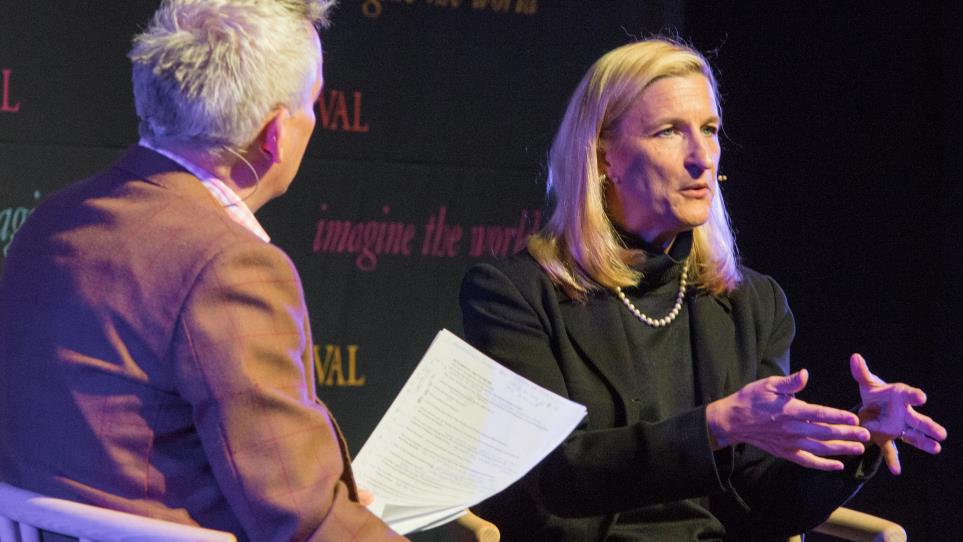
Ruta Sepetys, winner of the 2017 Carnegie Medal, published her historical novel Salt to the Sea for young adults in 2016. Set in 1945, the novel centres on an overlooked World War II maritime disaster, with a death count exceeding that of the Titanic, and tells it through the stories of four young refugees on board the ill-fated ship Wilhelm Gustloff, which sank in the Baltic Sea.
Talking with Jonathan Douglas, director of the National Literacy Trust, Sepetys spoke of her Lithuanian heritage and how this influenced the novel. Her desire to give a voice to the repressed was perhaps born out of the experiences of her father, a Lithuanian military officer who fled the threat of execution by Stalinist forces and spent nine years in a refugee camp.
The process of researching the novel was an extensive and emotional experience for Sepetys; she travelled to six different countries in order to explore the dramatically different experiences of survivors and the families of those who were lost. “Even if they didn’t speak the language there was a solidarity amongst them,” she said.
Sepetys stressed how keen she is to reach out to the next generation of writers: “young readers are deep thinkers and deep feelers”.
Salt to the Sea is incredibly topical in a time of division and hostility towards refugees and minorities. Sepetys argued that, above all, the novel’s tale of hardship demonstrates that “progress isn’t permanent”. Nevertheless, Salt to the Sea proves that refugees can find a platform in fiction to have their voices heard.
If you missed this, you might enjoy Event HD28: Frances Hardinge talks to Georgia Godwin, which takes place tomorrow at 2.30pm.